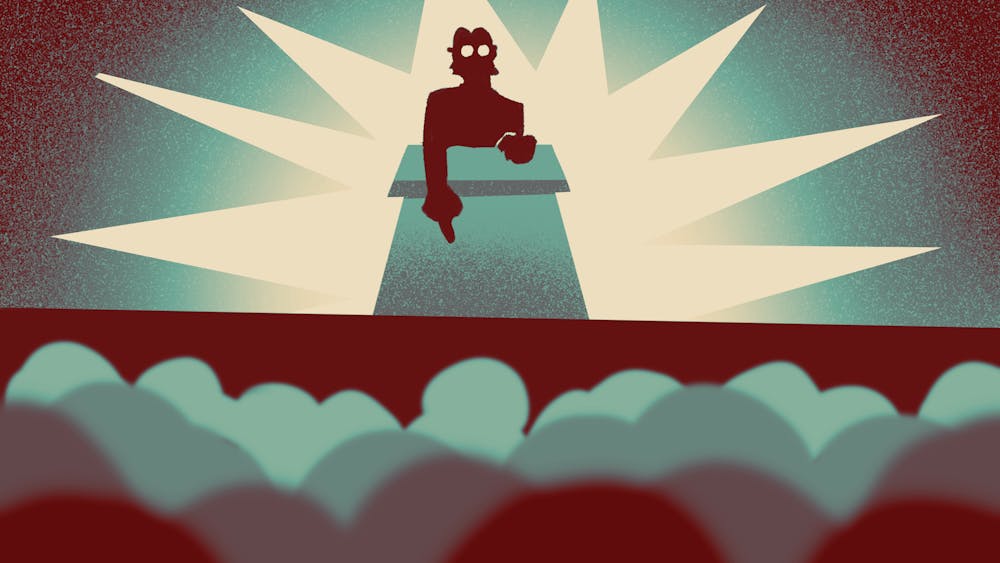They make them feel comfortable, and they ask them all of the questions they have about the crime at hand.
Only after this has been done do officers strap wires around their bodies to monitor their breathing, a blood pressure cuff on their arms to record their stress level and plates on their fingers to see how much they sweat.
They then repeat the questions that they’ve already asked and analyze the results.
This is the kind of background information on police operations that citizens can learn from the Indiana State Police Road Show.
The weekly radio show began in the 1960s when a prosecutor’s office in northern Indiana gave a tape recorder to a local trooper.
“He taped his traffic stops, and he would go on the radio once a week and play some of those recordings and just kind of have fun with it,” said Sgt. Rich Myers, the public information officer for the ISP’s Indianapolis district who hosts the show.
From this, the show evolved into the 15-minute program that is currently broadcast in counties across the state. Myers said that the show is sometimes even aired in Chicago.
The episodes are also available on the ISP YouTube channel.
The program is supported by the ISP’s Cops for Kids, an organization meant to build relationships between police officers and children.
Because of this funding, the show does not use any taxpayer dollars.
“It gets people thinking about what we want them to talk about,” Myers said.
During months with a lot of fires, for example, they have officers come on air and talk about fire safety.
“I’ve been a police officer for 29 years, and there were a lot of things I didn’t understand about the polygraph instrument and how it worked,” Myers said. “I learn something from our own troopers, our own investigators and people from different walks of life every time I do this show.”
Myers said he has not heard of any other state police departments who have similar programs, certainly none that have lasted this long.
“We have a public that likes to listen to us and hear about what we’re doing,” he said.





